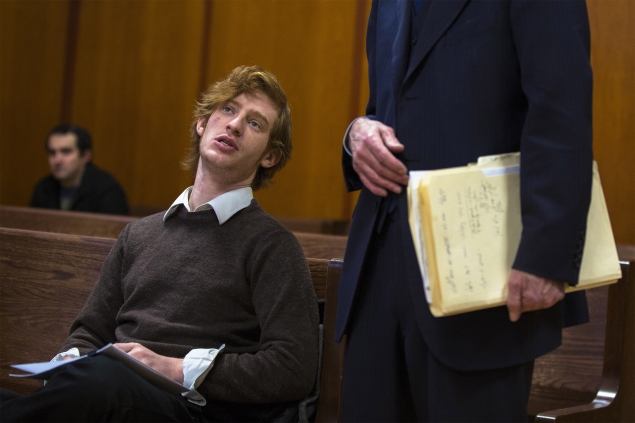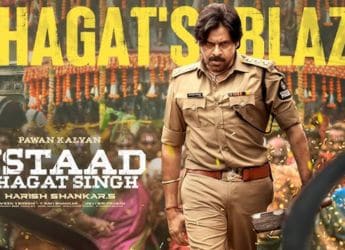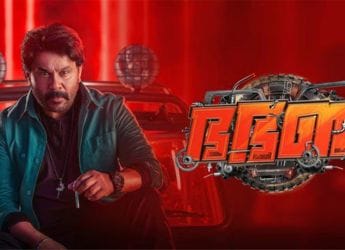- Home
- Social networking
- Social networking News
- Twitter, privacy advocates eye Occupy case after guilty plea
Twitter, privacy advocates eye Occupy case after guilty plea

The guilty plea in New York City Criminal Court from Malcolm Harris, one of hundreds arrested during an October 2011 mass march across the Brooklyn Bridge, does not mark the end of his legal battle, his lawyer, Martin Stolar said.
With his criminal case resolved, Harris is now free to appeal the judge's ruling that he does not have the legal right to challenge a subpoena served on Twitter for his tweets.
That issue essentially, whether users of the social media site Twitter own their tweets and thus have standing to challenge prosecutors who seek to use their posts against them - has rarely, if ever, been taken up by U.S. courts.
The case, and the murky legal ground it covers, has prompted concerns among privacy advocates. They worry it could set a precedent that social media users do not own their content, putting the burden on Twitter and other companies to step in on their users' behalf when they face criminal prosecution.
"Setting a legal precedent on how this material can be used is much more important" than the minor offense he faced, Harris said outside the courtroom after entering the plea.
Manhattan Criminal Court Judge Matthew Sciarrino ruled earlier this year that Harris cannot challenge the subpoena because his posts belong to Twitter, not to him.
That stance runs contrary to Twitter's own interpretation. The company maintains in its terms of service that users have a proprietary interest in their tweets.
Twitter filed its own motion to quash the subpoena, but Sciarrino rejected that effort as well.
Twitter has appealed that ruling, calling it a case "of first impression," and groups like the American Civil Liberties Union have filed amicus briefs in support. An appellate court has not yet rendered a decision.
"This case demonstrates why the law needs to keep up with technology," said Aden Fine, an ACLU lawyer.
"The most troubling aspect of this case is the court's ruling that an individual Twitter user doesn't even have the right to go to court to try to protect their constitutional rights. It's not realistic to expect Twitter to go into court every single time one of its millions of users is affected by a subpoena."
The Brooklyn Bridge protest occurred at the height of the Occupy movement, which drew thousands of activists across the country angry at what they called a rigged economic system.
Like many of the protesters, Harris had argued that police appeared to lead protesters onto the bridge before suddenly arresting them.
But prosecutors said in court Wednesday that his tweets, which were no longer available online, undermined that defense. Harris boasted that the protesters pushed past police even when they tried to stop the march, according to prosecutors.
Twitter handed over the tweets in September after Sciarrino threatened it with civil contempt and hefty fines.
© Thomson Reuters 2012
Catch the latest from the Consumer Electronics Show on Gadgets 360, at our CES 2026 hub.
Related Stories
- Samsung Galaxy Unpacked 2025
- ChatGPT
- Redmi Note 14 Pro+
- iPhone 16
- Apple Vision Pro
- Oneplus 12
- OnePlus Nord CE 3 Lite 5G
- iPhone 13
- Xiaomi 14 Pro
- Oppo Find N3
- Tecno Spark Go (2023)
- Realme V30
- Best Phones Under 25000
- Samsung Galaxy S24 Series
- Cryptocurrency
- iQoo 12
- Samsung Galaxy S24 Ultra
- Giottus
- Samsung Galaxy Z Flip 5
- Apple 'Scary Fast'
- Housefull 5
- GoPro Hero 12 Black Review
- Invincible Season 2
- JioGlass
- HD Ready TV
- Laptop Under 50000
- Smartwatch Under 10000
- Latest Mobile Phones
- Compare Phones
- Tecno Spark Go 3
- iQOO Z11 Turbo
- OPPO A6c
- Samsung Galaxy A07 5G
- Vivo Y500i
- OnePlus Turbo 6V
- OnePlus Turbo 6
- Itel Zeno 20 Max
- Lenovo Yoga Slim 7x (2025)
- Lenovo Yoga Slim 7a
- Lenovo Idea Tab Plus
- Realme Pad 3
- Garmin Quatix 8 Pro
- NoiseFit Pro 6R
- Haier H5E Series
- Acerpure Nitro Z Series 100-inch QLED TV
- Asus ROG Ally
- Nintendo Switch Lite
- Haier 1.6 Ton 5 Star Inverter Split AC (HSU19G-MZAID5BN-INV)
- Haier 1.6 Ton 5 Star Inverter Split AC (HSU19G-MZAIM5BN-INV)















